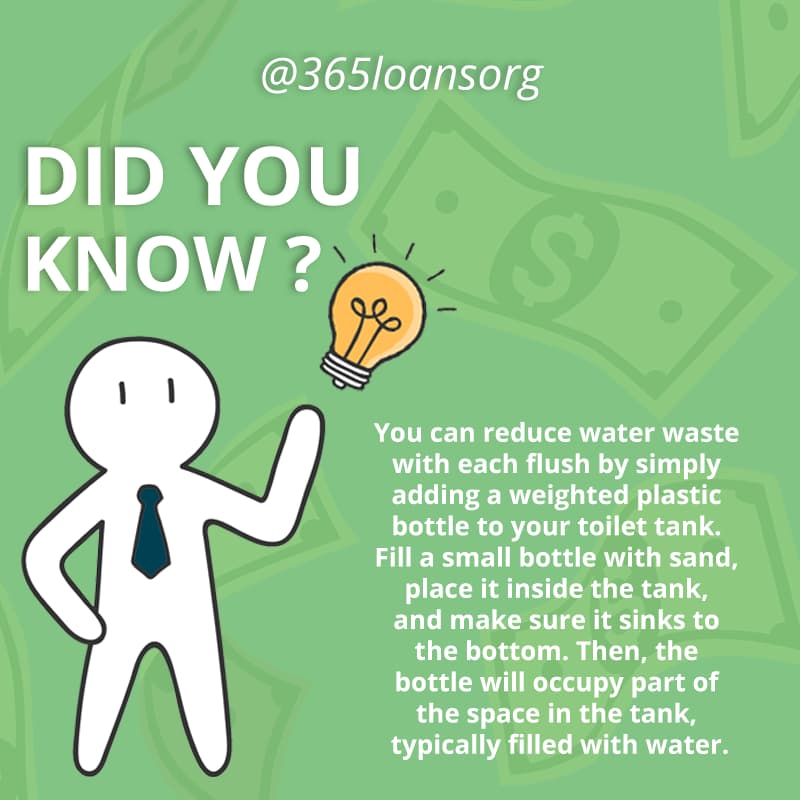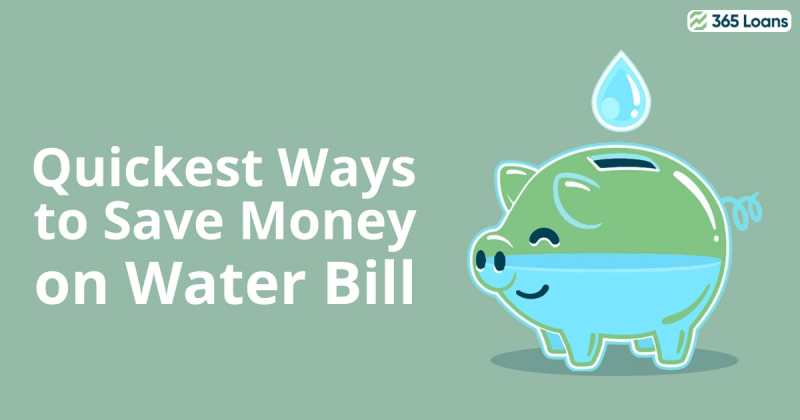There are other energy costs to be concerned about this winter than electricity and heating.
In the winter, utility prices typically increase as you turn up the heat to stay warm. But heating an entire home or apartment may be extremely expensive, especially since experts anticipate a more than 10% nationwide increase in heating prices this coming winter. As a result, it’s critical to cut costs everywhere you can.
In this part of our savings series, we will be particularly focusing on your water bill.
How to save money on water bills?
According to the Environmental Protection Agency, the typical home uses more than 300 gallons of water per day between showers, sinks, toilets, dishwashers, washing machines, and yard labor. This sums up to an average annual water expenditure of $1,000 (or little more than $83 per month). Depending on your location, water usage patterns, water-saving technology, and other variables, your usual bill may be lower or higher than this.
Changing your water usage is a wise strategy to reduce monthly bills this winter, whether you are worried about rising utility costs or trying to be frugal. Reducing your water use will result in a small layer of energy savings that could simply be implemented into your daily life with the following set of actions and modifications to your habits:
Improve the efficiency of your faucets
An aerator will improve the efficiency of older faucets, helping you save water and money. Aerators are tiny, spherical devices that attach to the faucet head and add air to the water stream. As a result, the water is compacted and produces a stream that is more reliable while using 30% less water.
Alternatively, you may replace your old faucet with a new, WaterSense-certified faucet if you are ready to take on a little bit of a bigger project. These goods are EPA-approved and promised to consume at least 20% less water than previous models.
Run your dishwasher only when it is full
As long as you’re running a full load, running the dishwasher is actually more water-efficient than cleaning the dishes by hand. Every time you run the machine at less than its total capacity, you are really throwing money down the sink. So, next time you decide not to load the dishwasher but to handwash, remember that this practice wastes up to 20,000 liters of water annually.
In fact, most modern dishwashers can handle the leftovers as long as you discard the bulky food items. Think of an additional 20,000 liters of water annually by not pre-rinsing your dishes.
Change up your showering routine
The average person uses 70 liters of water per shower, which is eight minutes long. So you could potentially save hundreds of liters of water each month if everyone in your home tried to take fewer or shorter showers.
Installing a water-efficient shower head can save even more water while taking showers. In fact, according to the EPA, using a WaterSense-approved shower head can save a family’s annual water and energy bills by as much as $70.
You might also want to check out: Unplugging Appliances When Not In Use: Myth or Fact?
When flushing, use less water each time
Nearly 30% of the water used inside a typical home is used for toilets. The usage of water by your toilet can be decreased in a number of ways, including by installing a low-flow toilet. These water-saving toilets can save your household up to $140 annually, according to the EPA.
You could also look up many different DIY and cheap solutions. For instance, many Japanese households and public places use a toilet-sink combo to reuse handwashing water for flushing the toilet. It is a simple but brilliant idea.

Fix any known water leaks
It is a bit of clichéd advice, but still a classical case of home negligence. A leak may be the fault if you have seen any increases in your water bill but have not changed your habits.
Spend some time looking for leaks around the house before altering your water consumption patterns or making an investment in new appliances.
Look for puddles by your toilets, in the dishwasher, under your sinks, and near your washing machine. Make sure to address any leaks or water stains as soon as you notice them. To help find upcoming water leaks, you can also install intelligent leak sensors.

Bottom line
The most effective ways to reduce your water bill are to use less water and replace inefficient appliances. Each of these simple adjustments, such as installing a faucet aerator or taking shorter showers, can teach you how to use water more wisely, which is good for both your wallet and the environment.







